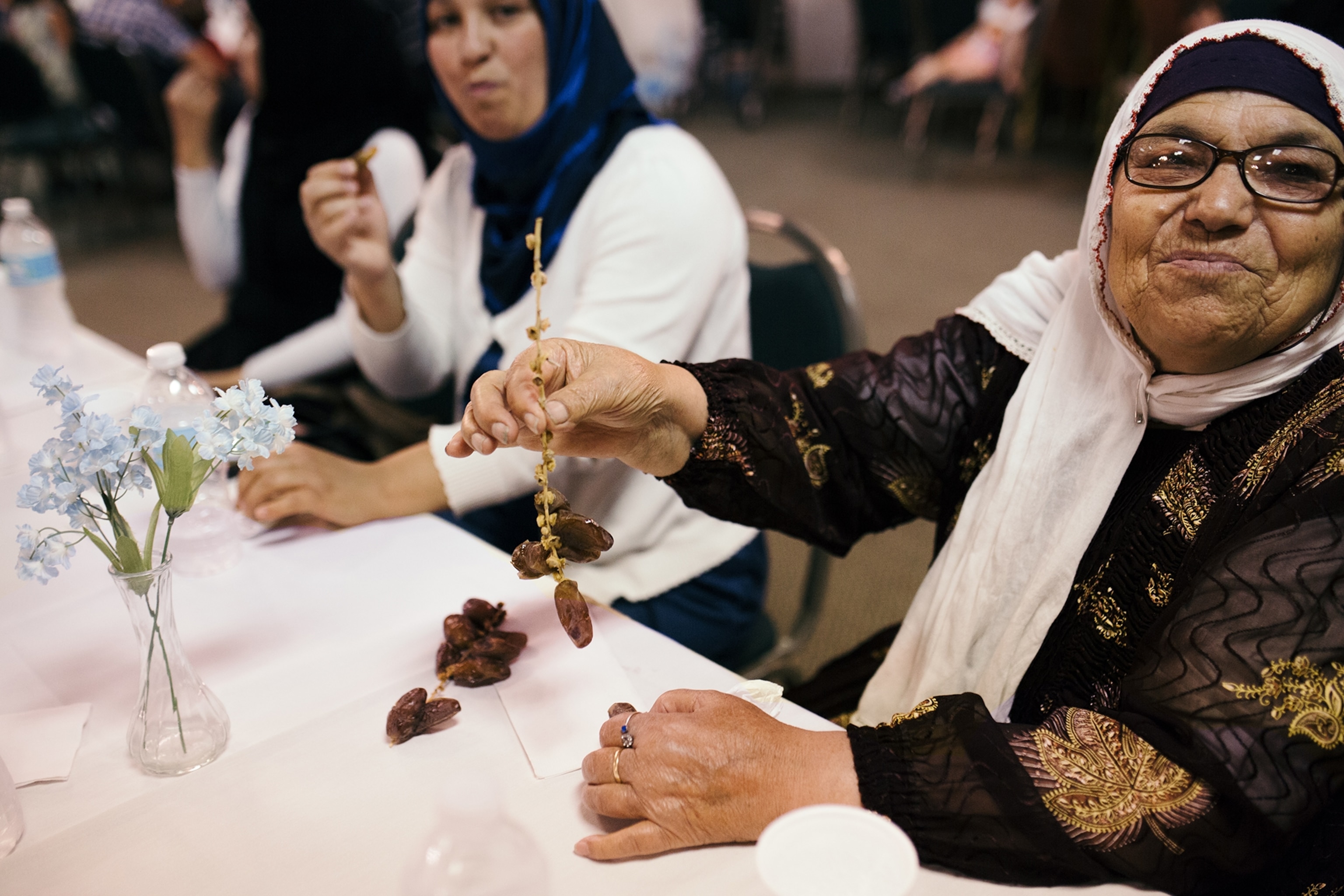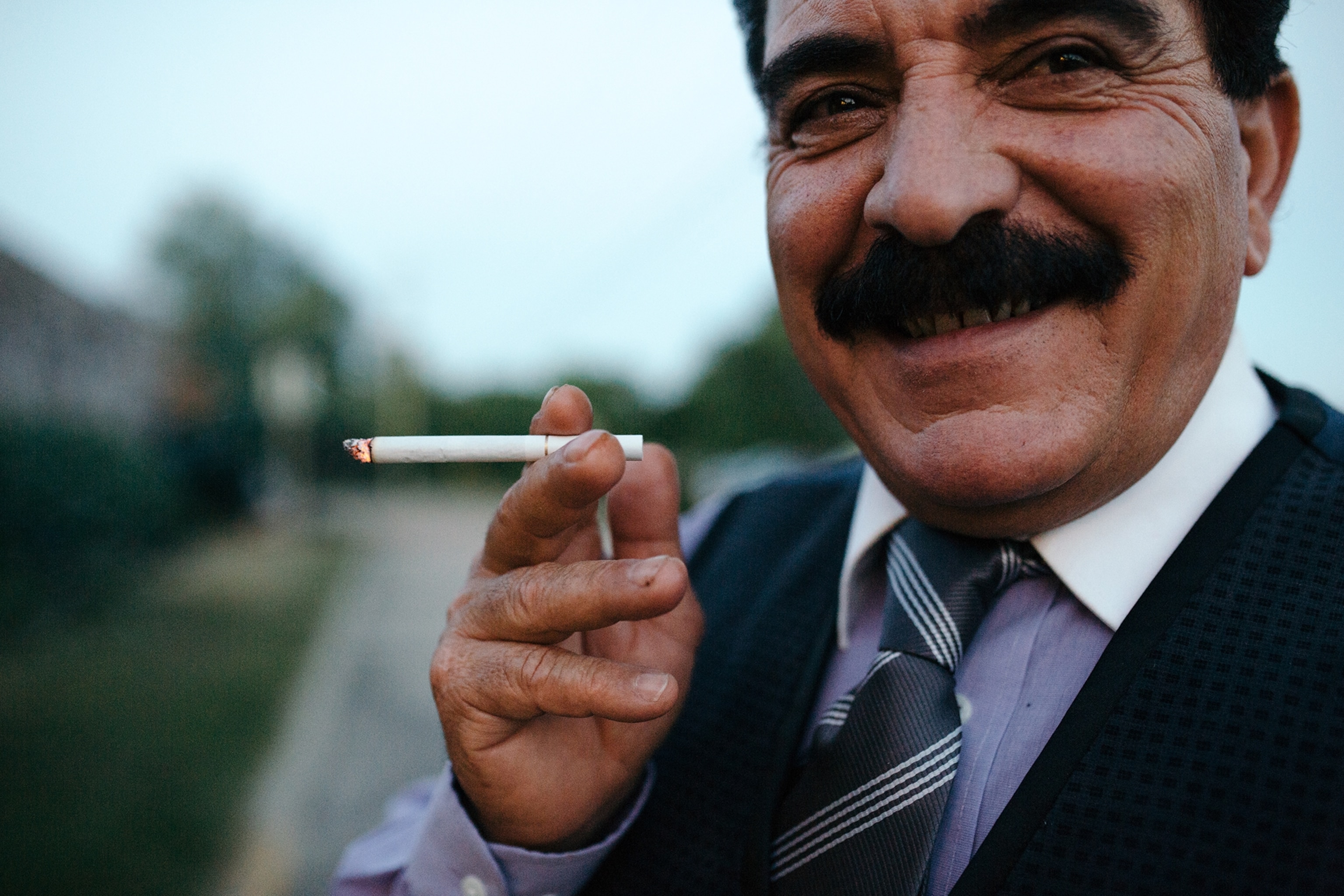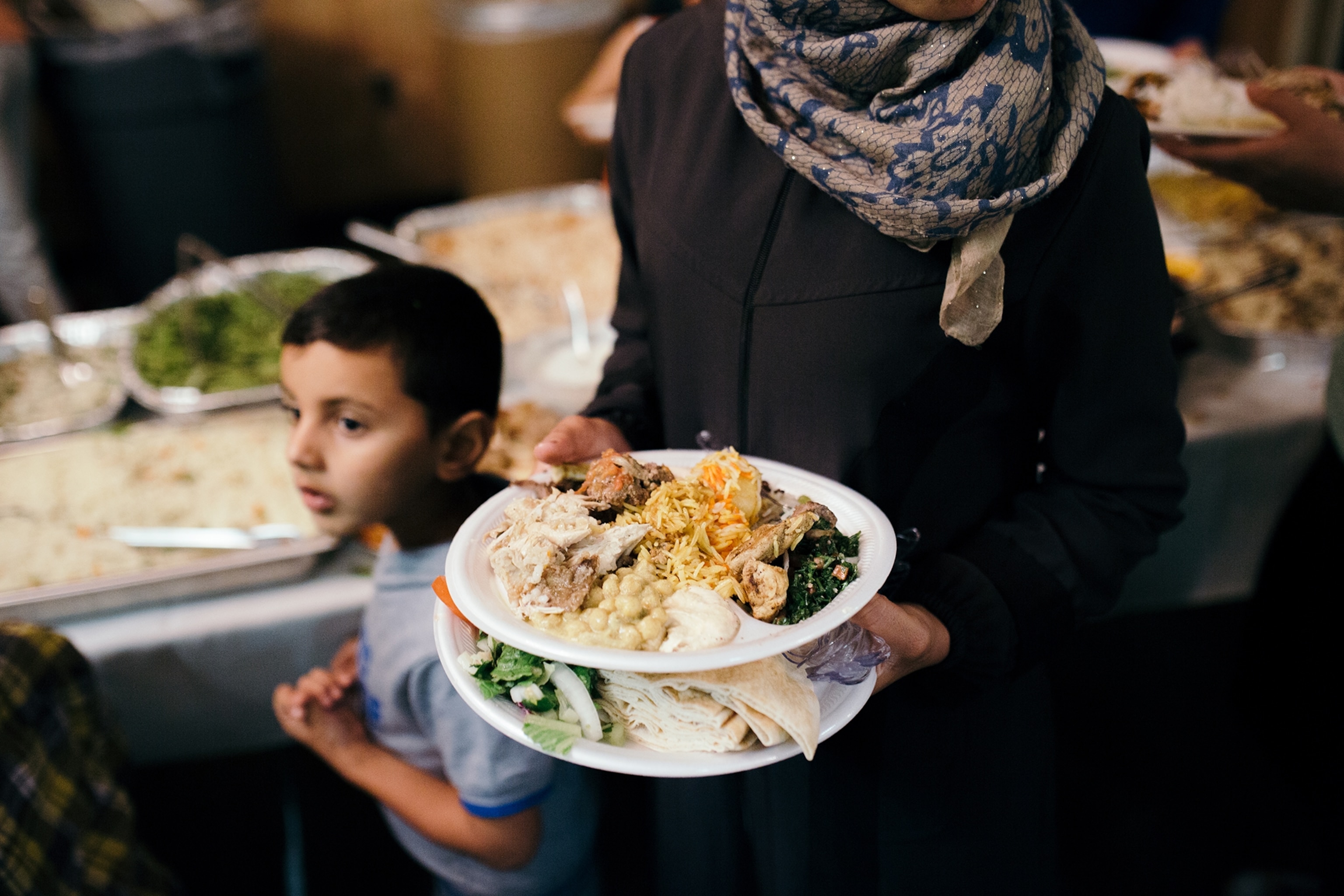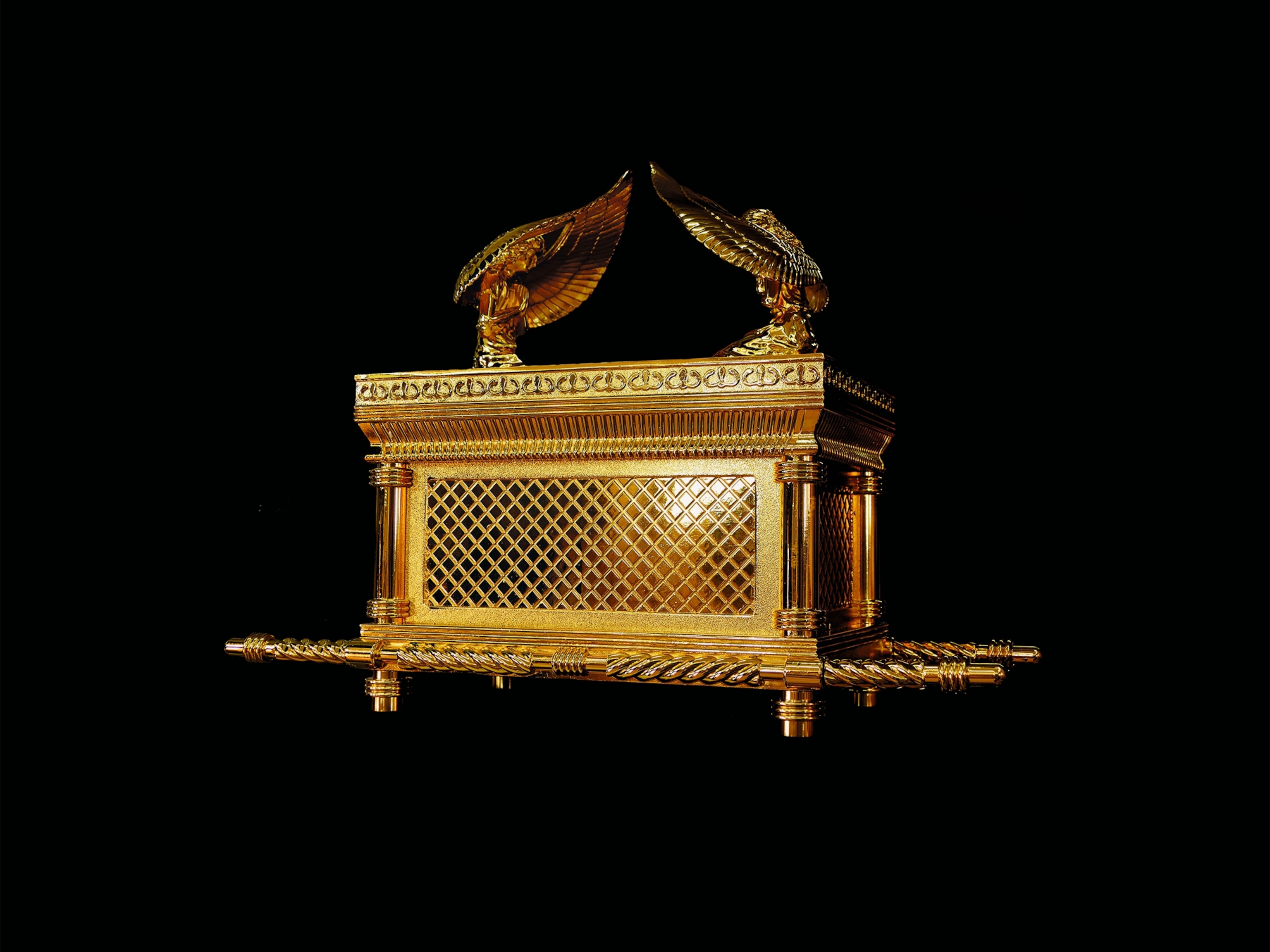
Ramadan, Reshaped: Syrians Abroad Find New Ways to Celebrate
Detroit-area residents welcome Syrian immigrants at an interfaith Iftar to celebrate the end of a fast during the holy month of Ramadan.
When Sameer Rashdan and his wife Intissar arrived in Detroit eight months ago, they did not know what kind of community was waiting for them and their seven children. They had never celebrated Ramadan, the Muslim holy month of fasting, introspection, and prayer, outside of the Middle East. As Syrian refugees in a strange new country, the last thing they imagined was participating in a celebratory Iftar with over 200 other Syrian refugees hosted by the city’s interfaith activists and volunteers.
During Ramadan, which this year runs roughly from June 5 to July 5 ( the precise dates are complicated), Muslims fast all day, and break that fast only at sundown. Usually, it ends with a communal, festive meal called Iftar. Extended family members, neighbors, and friends gather, each bringing a dish to share.
Seeing a unique opportunity to welcome recently resettled refugees, the Muslim-Jewish Forum of Detroit teamed up with the non-profit Syrian-American Rescue Network to co-host an Iftar potluck dinner on Monday night. Breaking bread together would give the whole community a way to celebrate diversity and inclusivity, rather than division and separation; and of course a chance to taste some homemade, authentic dishes made by the refugees themselves.
Through the varying palates and aromas of delicious Syrian fare, many stories of immigration were shared. “In essence, we’re all refugees in this world,” one Jewish man says.
Sameer was enthusiastic about sharing a meal with his Jewish neighbors: “We are all humans, creatures of God. We are living together in harmony in America. When we eat together, everything else is deleted—all our differences in religion and politics.”
For this event, the Rashdan family prepared a Syrian version of maqluba, which means “upside-down” in Arabic. It’s a complicated but comforting dish found in many countries across the Middle East. Intissar’s version includes multiple layers of vegetables, fried eggplant, roasted chicken breast, and rice. All strategically placed components are cooked together on a tray and then flipped over before serving.
As a matriarch, Intissar cooks every day for her family, but preparing food for an Iftar takes on a deeper meaning. It is considered a spiritual gift to feed someone at this time. “I love to feed people during Ramadan; it’s like giving charity—the best time to cook.”
The Rashdan family hasn’t had an easy entry into their new life. Originally from the southwestern Syrian city of Daraa, they fled their home because of violent attacks by the Syrian regime. After nearly four years in Jordan, they finally obtained refugee status from the UN Refugee Agency and security clearance to relocate to Detroit. But they are not alone. Since last October, 211 Syrians have been resettled in Michigan, more than any other state in the country adding up to a grand total of 386 resettlements between January 1, 2015 and May of this year. And this number is rapidly increasing. Nearly 40 people arrived in the past two weeks.
While there were many new things to get used to in Michigan, like learning English and driving a car to the nearest grocery store, cooking traditional Middle Eastern food was not one of them. “We live so close to Dearborn (one of the largest Arab communities in North America), where Arabic food stores carry all the right ingredients and spices,” a refugee from Hamtramck says. “There are more options here than in Syria!” she adds, pointing to a plate of kibbeh that she made for the celebration. Kibbeh is sometimes called the national dish of Syria. It is often a torpedo-shaped fried croquette stuffed with bulgur, minced onions, and ground beef. It's heavy on cinnamon, nutmeg, cloves, and cardamom spices.

We are all humans, creatures of God. We are living together in harmony in America. When we eat together, everything else is deleted—all our differences in religion and politics.Sameer Rashdan, Syrian immigrant
Other examples of Syrian cuisine making an appearance (and quick disappearance) from the dinner was a colorful mandi rice plate, decorated with orange and red food coloring, green peas, and fried chicken. Fatti is a visually stunning work of edible art that can be vegetarian or include minced meat. The base is made up of chickpeas, regular pita chips and darkly-browned and fried pita chips, which add some color depth and a crispy texture. The dish is doused in a yogurt and tahini sauce with garlic-roasted almonds sprinkled on top.
Large trays of traditional Arabic salad, with tomatoes, cucumbers, onions, herbs (mostly cilantro), and olive oil were also a favorite among the nearly 400 attendees. And of course, no Middle Eastern meal is complete without trays of falafel and rice-stuffed vegetarian grape leaves.
The event began at the Balkan Community Center with a few opening words by representatives from the Muslim-Jewish Forum, who thanked the many sponsors.

Once the sun finally set at 9:13 pm, a muadhin recited the adhan (call to prayer) as small plates of dates were passed around the room. Breaking the fast with dates is a Ramadan tradition all over the world. After a long summer’s day of no food or water, the high level of natural sugars in dates quickly converts to energy in the human body. With some glucose in their system, the observant Muslim attendees proceeded to the prayer room for the Maghrib prayer while the Jewish guests politely waited.
Finally, after days of preparation and cooking, the covers of tinfoil trays were lifted and a line rapidly formed. The initial rush to the food grabbed everyone’s attention, but once people took their seats to eat, discussions began. For the first time, many local Detroiters were able to mingle with the same Syrian refugees they had heard so much about in the news.
Food is a connector, either between individuals eating together or a person’s relationship with their home country’s traditions. For Syrian refugees around Detroit, food provides a way to adapt to their new life in the Midwest, among Americans, and as a way to stay connected to their roots. “I love it here. Detroit is home,” Intissar says. “Syria is home, too, but we can’t go back there. I can be anywhere in the world, but when I’m cooking or eating with my family and neighbors, I’m home; I’m back in Syria.”
Lolita Brayman is a writer and an immigration attorney specializing in refugee and asylum cases. She recently wrote about Syrian refugees for The Guardian, The Washington Post, and the Detroit News. She is also a co-founder of the Muslim-Jewish Forum of Detroit. She is on Twitter @lolzlita.






